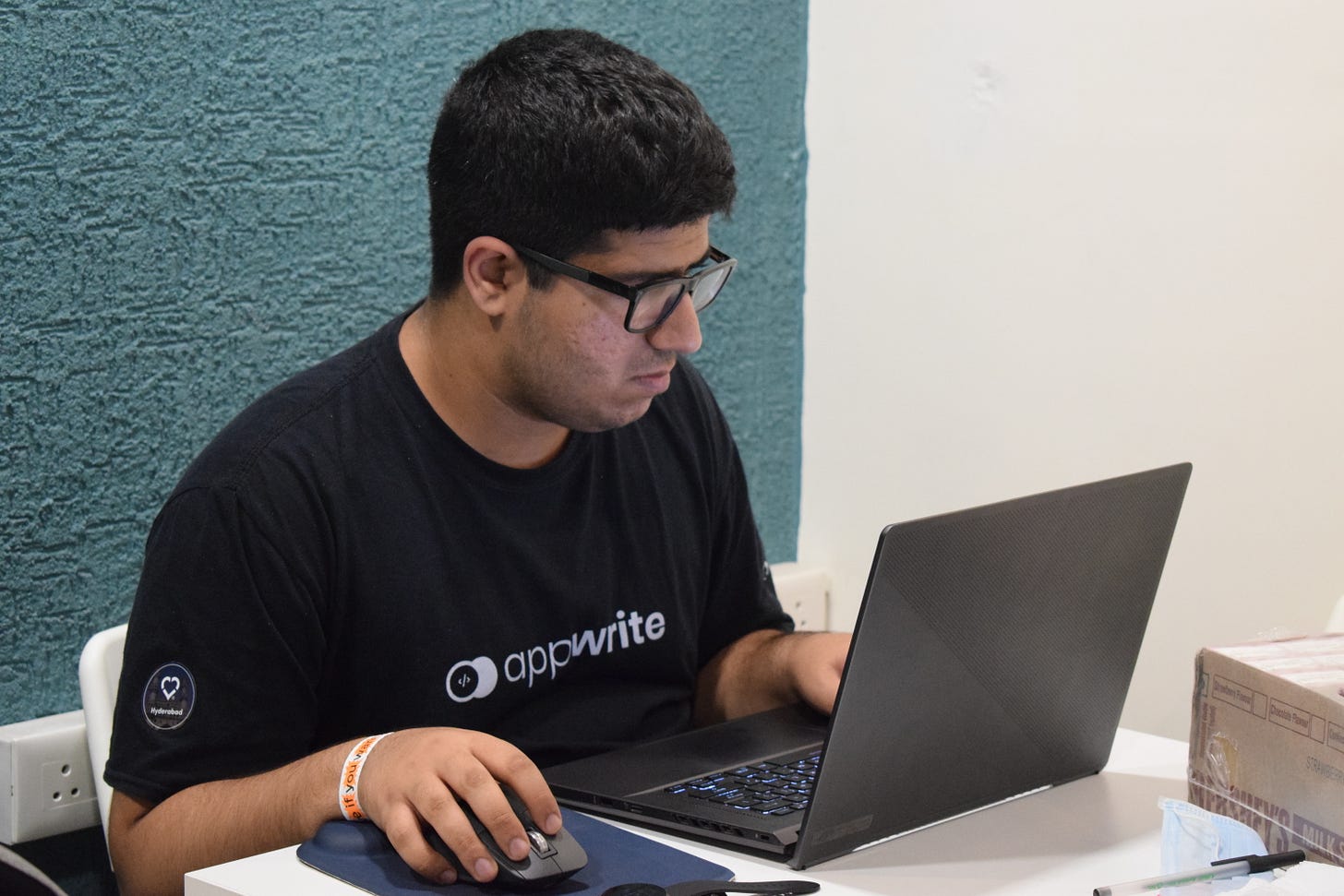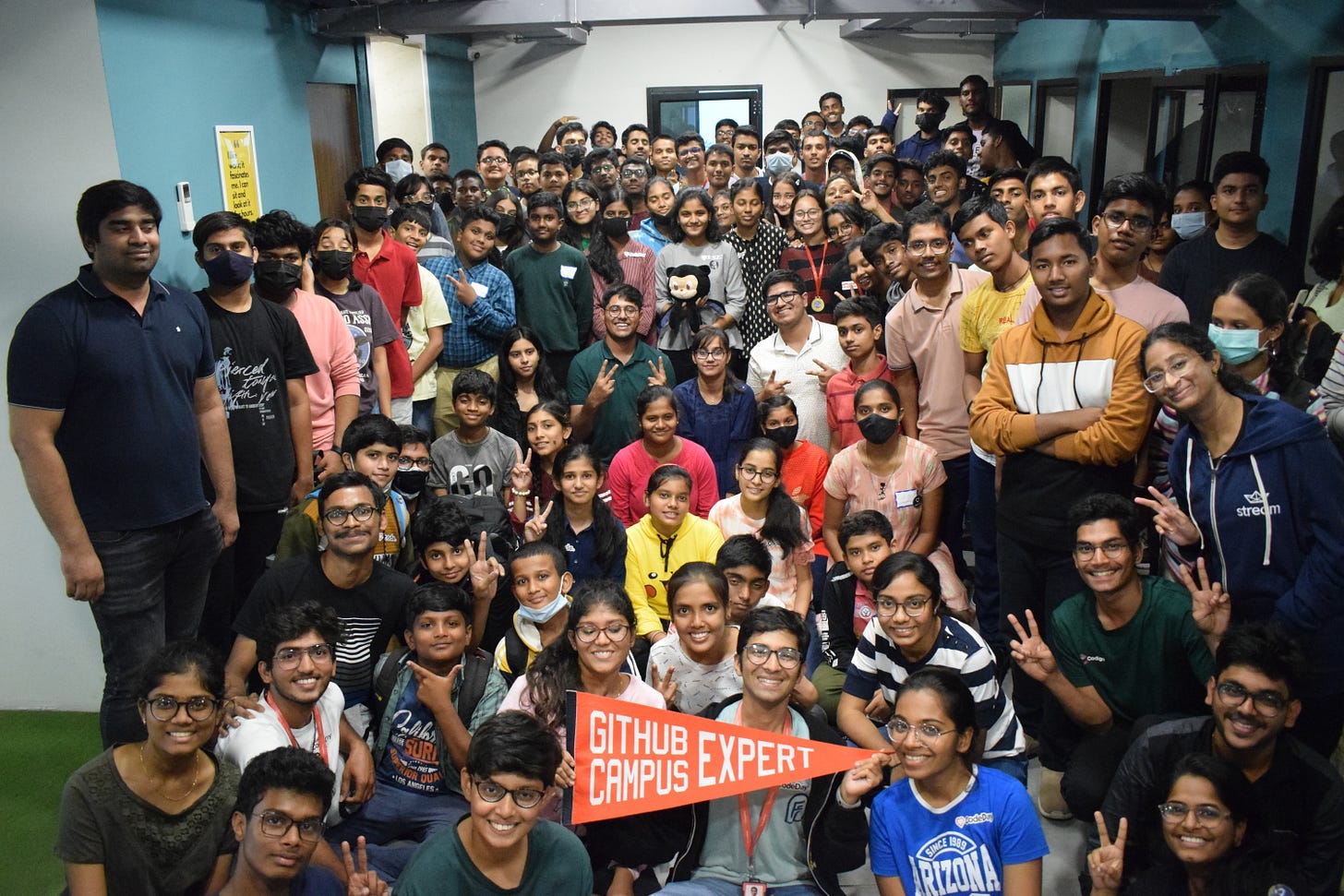Should You Choose A Career In DevRel Or Not?
A common question I often get at the moment from my fellow community members, not just from the perspective of developing a career but also to get exposure, is whether people should pursue opportunities in Developer Relations (aka DevRel) or not.
If this is a question you have asked yourself (or someone else), I'll try and provide insights from the last ten months I have spent as a DevRel professional.
Disclaimer: Many of the opinions I share in this issue are aimed at Indian engineering students and younger professionals aspiring to become Developer Advocates or DevRel Engineers, as that's the group from whom I receive this question the most. If you don't belong to either group (for example, if you're looking to transition to DevRel Management or are an experienced professional in the space), take my opinions with a pinch of salt.
Understanding What DevRel Is 🥑
First things first, it is necessary to understand what the term DevRel even means. Is it just a flashy buzzword from Twitter today? Is it another route for a student to run away from a development career while staying near tech? Or is it something more? The reason I state these questions is that these questions are ones that I have asked and been asked in my journey so far. From my experience, I can contently say that DevRel isn't just another fad that will disappear over the next few months or years.
Developer Relations or DevRel acts as the bridge between a developer(s) and the product they intend to build their solutions with.
DevRel teams came into inception because as we move towards a more technologically-enabled world, we are seeing more people developing solutions to problems using programming and computer science and have more companies catering to such folks. With more and more organizations catering their services to developers, it became apparent that these organizations need people who can build with their platforms, communicate with developers, educate newcomers, grow their audience, etc. DevRel aims to fit this gap precisely.
For further understanding, read the following blog:
What Is DevRel? | by Aditya Oberai | Medium — adityaoberai.medium.com Over the last two years that I spent in tech communities, one question I often receive is what is DevRel or Developer Relation? Find out more in this blog.
What DevRel Requires An Individual To Be 🤝
Considering that DevRel is generally considered an amalgam of code, content, and community, most roles in this space need you to be a jack of all three trades while being a master of one. As a Developer Advocate at an open-source developer tooling company, I provide technical help and contribute to our product (fixes and features) aside from writing content for our blog and social media, and managing new community initiatives, among other things.
My experience has taught me that, while there is always space to learn, as an early DevRel practitioner, you should get your hands experienced on all three fronts before rushing into this career.
Why Experience Writing Code Is Important 🧑💻
The time I spent learning how to build projects and working on real-world solutions (through self-defined problems or my internship) has substantially helped me in my DevRel journey. This is because understanding the pros and cons of the product I advocate for from a technical standpoint allows me to build a better sense of developer empathy for our community. If I couldn't build with our product, it would be impossible for me to relate to their problems and help solve them. Moreover, being able to code allows me to experience the Developer Experience of our product and offer feedback to our engineers.
Why Experience Creating Content Is Important 📝
Every professional in DevRel I have come across has always held this one common responsibility: ensuring that communication around their product occurs appropriately. Being able to create and deliver content (written, audio, or video) is a skill that DevRel practitioners must develop. It'll enable you to advocate for your product more accurately and increase your likability and relatability, which also benefits your personal and organization's brands.
Why Experience Building Communities Is Important 👨👩👧👦
My journey toward Developer Relations started by volunteering in communities. From leading a hackathon community (among others) to working as a Community Intern, I gained experience in planning new initiatives, managing their execution, collaborating with external stakeholders, building an audience, sustaining engagement, and maintaining brand growth. This experience gave me insights into how companies perceive communities and why they are necessary for user feedback and growth.
Like it or not, being a DevRel professional, you are contributing to the business at the end of the day. Aside from learning how to work with larger groups of people, building communities helps to evaluate how you can impact the growth of an organization.
Is A DevRel Career Just About Having Relevant Skills? 💼
I am strongly opinionated when I say that DevRel is not just a role but a philosophy. You don't wake up one day and decide to do DevRel. You build up these habits over time, whether you're helping developers, creating content, or writing code, until you wake up one day and realize you're doing it all anyway.
Right now (at least within the India tech and student communities), while I insist that DevRel isn't a fad, a bubble is beginning to exist. Far too many people are prematurely rushing toward this domain because it might seem like a more accessible way into tech than software development or because it automatically gives you a glorified platform.
Truthfully, anyone chasing a DevRel career in this manner does not sustain because DevRel has so much beneath the tip of the iceberg that it can cause people to burn out rather badly.
Taking This Decision 🛣️
It's necessary not to rush the decision on whether you want to start a career in Developer Relations. I spent two years volunteering in communities and worked for five months as a Community Intern, two months as a User Research Intern, and two months as a Software Developer Intern (plus some more contractual work) before I made up my mind.
The truth is that code, content, and community are vast spaces of their own; you can very well fall in love with any of these spaces individually and pursue your career there, or at least give yourself a chance to fail and move forward. I started my DevRel journey through communities and made my way from there. However, that's just one way to get started and not the only one.
As long as you spend time understanding the right space for you to work in, you'll be totally okay!







